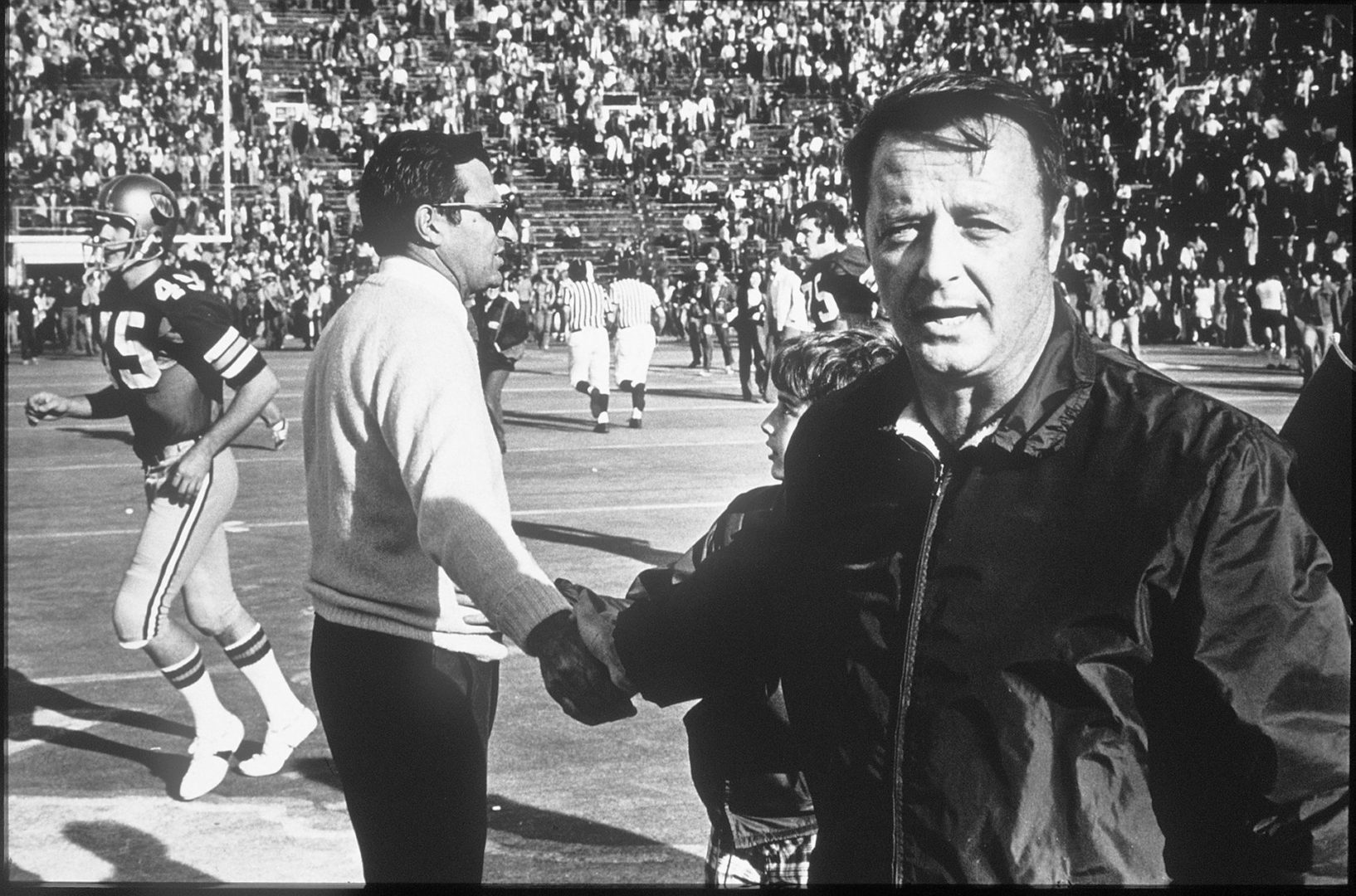Growing up in the 1970s and 1980s and starting my coaching career in the 1990s, there are a few faces that would go on the coaching Mount Rushmore of that era. Bobby Bowden would be one of them. And as a terminal illness has set a not-too-distant end point to his life, it is a good time to reflect on Coach Bowden.
At the risk of sounding like an old man talking about the good old days…
Bobby Bowden is a member of the last generation where the sport was filled with men for whom college football coaching was a calling, not a profession. In the days when Bowden got into coaching, no one got into it dreaming of rich paydays.
The huge contracts simply did not exist. Certainly, as he and others of his generation became more and more successful, their contracts grew. But that was earned over a long, long period of time and it certainly was not what they expected when they started coaching.
After several years at West Virginia, Coach Bowden went to Florida State when no one else really wanted the job. The ‘Noles were an independent team without a conference, and a team that lost a whole lot more than they won. For many, it seemed like a stepping-stone job to something else. But Bowden turned FSU into a destination job, and he would remain there for decades.
His accomplishments on the field are well known. ACC titles, national titles, a string of top-five finishes that boggles the mind. He put together teams that were heavy on speed. He put together coaching staffs that were loyal to him and loyal to FSU.
He was not content to simply recruit talented players. His coaches took those players and coached fundamentals and details. They played disciplined, physical football. In the 1990s, we visited FSU for spring practice and saw that attention to toughness and to detail in person.
He was also innovative. In 1992 and 1993, long before the current no-huddle craze, they implemented a no-huddle offense they dubbed the “Fast Break Offense.” Quarterback Charlie Ward would go on to win the 1993 Heisman Trophy and national title. Over a two-year period, that team averaged over 41 points a game, which was a huge number back then.
And, Coach Bowden, I have a confession to make. During that two-year period, the lowest FSU point total was 13 points in 1992 against Virginia in Charlottesville. I was a graduate assistant coach at UVA and watching TV tapes of your games I figured out your hand signals. We used those signals to let our defensive coordinator know what was coming. You guys never did change them all season. But holding you to 13 points wasn’t enough because you had a defense that held us to 3 points.
Over the Bowden years, they always seemed to have a ferocious defense and that was because of the long partnership between Bowden and defensive coordinator Mickey Andrews.
You would be hard pressed to ever find a game with more speed, more hard hitting and more intensity than the three-overtime 2006 Orange Bowl game between the ACC champion FSU and Big Ten champion Penn State. Andrews once commented to Coach Bill Kenney and me that he had never seen a more violent game than that one.
That is what you got when you played a Bobby Bowden team — intensity, talent, fundamentals and players who believed in themselves and in Coach Bowden.
But Bowden was more than football. Of all his assistant coaches that I got to know over the years, they spoke about Bowden with a mix of respect, reverence and love. The former players of his that I got to know held him in high regard, too. He was a devoted husband and family man. In a profession where one’s faith is often forged in fire, he remained a man of faith.
Above all, Bowden represented a generation of football coaches who acted like grown men setting an example and pushing their players to grow up. They wanted to have 18-year-old freshmen leave a few years later having matured and learned what it takes to be a man for the game of life.
In an era where many coaches are grown men who want to act like the kids they coach, that ethic and ethos of Coach Bowden and his generation is probably needed more than ever.
I believe it was Mark Twain who once joked about wanting to be at his own funeral so he’d hear what people had to say about him.
In 2011 when my father was diagnosed with cancer I reminded him of that. As a steady stream of former players and coaches visited or called or wrote, I reminded him how lucky he was to hear those things while he was still alive.
In the days ahead, I hope that Coach Bowden and his family hear those same stories from former players and coaches who loved him because of the impact he had on their lives. Because his generation was drawn to their calling to do just that—impact the people whose lives they reached through football.
And while Coach Bowden is still here, I hope he will understand from an assistant coach who coached against him what he meant to the game we love. And I hope he understands how much my father valued the time they spent together over the years and how much he cherished the eight games when they were across from each other.



